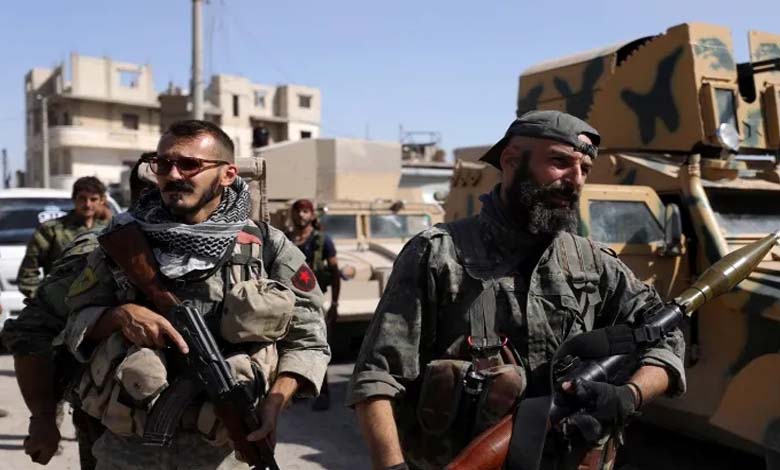Amid Regional Escalation: Experts Warn of the Return of Armed Groups and Political Islam Movements

The region is witnessing rapid developments, with escalating armed activities in Syria and Sudan recently raising fears of a resurgence of these groups and the return of political Islam movements to the Arab stage.
-
The “Hasm” movement of the Muslim Brotherhood aimed to overthrow the ruling regime in Egypt… How?
-
The Muslim Brotherhood’s crimes “will not be forgotten” … Egypt thwarts the group’s plans to sell Sinai
In Syria, Hayat Tahrir al-Sham (formerly Jabhat al-Nusra) has intensified its attacks in the north and west, seizing strategic areas like Aleppo. According to political researcher and writer Khairallah Khairallah, these developments reflect favorable conditions for the return of extremist groups, fueled by internal and regional factors.
Khairallah noted that the Syrian regime is contributing to an environment conducive to these organizations by refusing to implement comprehensive reforms or adhere to UN Security Council resolutions, including Resolution 2254.
-
Popular Unrest against the Muslim Brotherhood Escalates in Wadi Hadhramaut
-
Why Did the Muslim Brotherhood Reject the Document on Combating Violence Against Women?
Meanwhile, Syrian Parliament member Mohamed Khair al-Akkam stated that certain international actors, such as the United States, Turkey, and Israel, are capitalizing on the ongoing chaos by supporting these groups, making military solutions alone insufficient.
He added that the parties obstructing the end of the war exploit extremism to serve their interests, emphasizing the need for a comprehensive approach that addresses the intellectual and social roots of this phenomenon.
-
How the Muslim Brotherhood Reshaped the Sudanese Army
-
Tensions Rise in Hadramout: What is the Muslim Brotherhood’s Stance on the Killer of Saudi Soldiers?
The Sudan Case
In Sudan, the situation is different but equally alarming. A Muslim Brotherhood leader revealed the training of tens of thousands of youth for combat, signaling a potential transformation of the country into a new hotspot for armed conflicts.
Sudanese journalist Maher Abu al-Joukh said that extremist groups that ruled the country for decades continue to threaten security and stability. He believes that figures like Abdel Hay Youssef aim to recruit fighters under religious pretexts, thereby igniting new conflicts as these groups work to thwart efforts toward establishing a civil and democratic government.
-
Calls to Expel the Muslim Brotherhood Militias from Hadramout Valley
-
The Brotherhood Intensifies Terrorism Against Yemenis… Threats to the Student “Who Hugged Her Father”
Regional Support and Implications
Dr. Hassan al-Qabi, a professor of international relations, highlighted Turkey’s pivotal role in supporting factions tied to political Islam, particularly in Idleb, where these groups receive political and logistical protection.
He also pointed out that the repercussions of the political Islam wave that accompanied the “Arab Spring” led to the influx of weapons and fighters into Syria, warning that the continuation of this phenomenon could expand the activities of armed groups across borders.
-
Many Points of Convergence between the Muslim Brotherhood and Terrorist Organizations: Find Out More
-
How the Muslim Brotherhood Exploits the Palestinian Cause
Dr. Emad Jad emphasized that the Muslim Brotherhood is attempting to exploit internal divisions to restore its influence. He explained that Sudan’s political instability provides a space for these groups to recruit and train members.
He concluded that political Islam, whether moderate or extremist, remains loyal to ideologies that reject the nation-state, citing the example of the Muslim Brotherhood in Egypt, who turned into a violent group as soon as they assumed power.
-
Interpol Urged to Arrest Exiled Muslim Brotherhood Leaders
-
Tactics of the Muslim Brotherhood to Undermine Trust in Civil Forces and Discredit Their Image
Experts agree that countering these organizations requires a multidimensional approach, including combating extremist ideologies and cutting off the funding sources of these groups.












